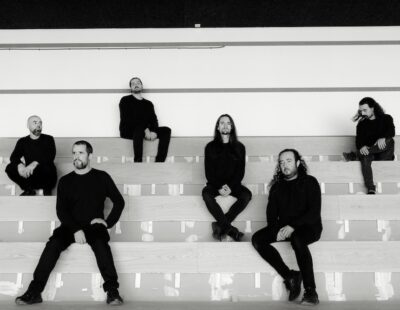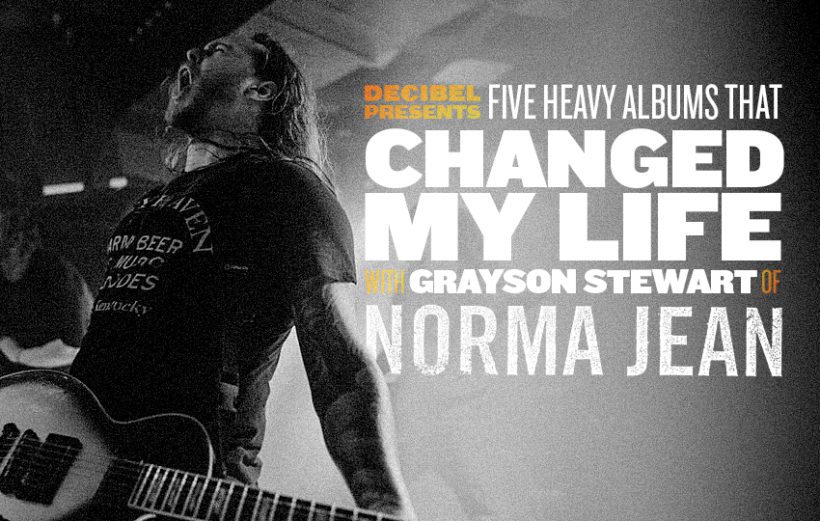
To celebrate the release of their eighth studio album, All Hail (which drops on October 25), we caught up with Atlanta hardcore/metal trailblazers Norma Jean‘s latest member, guitarist Grayson Stewart, to find out what five heavy albums changed his life.
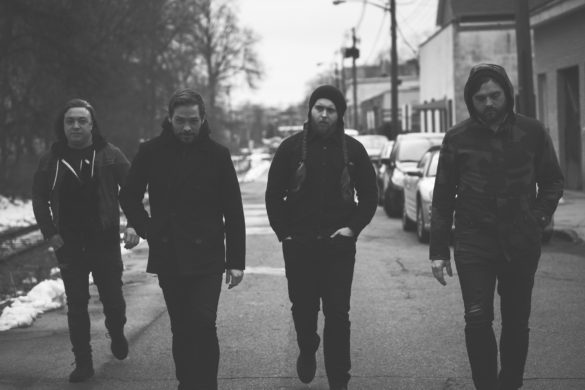
Read on to see what Canadian screamo record, what Billboard-chart-topping extremity, and what guns-stickin’ HC album helped influence Stewart, who was a significant contributor to All Hail.

1. Metallica – Master Of Puppets (1986)
I remember being 11 and walking into a Virgin Records store during a family vacation. I had discovered the world of heavy music the previous year after I started playing guitar and convinced my mom to get me a subscription to Guitar World magazine. I went down each aisle of records, getting borderline overwhelmed at all the bands I had never heard of, when I finally saw something that I recognized: A military graveyard with the most badass logo plastered across the top. I immediately grabbed it and convinced my parents to lend me the money for it. I spent the rest of that vacation with my Discman in hand, trying to understand this new kind of music. When the full band kicked in after the classical guitar intro on “Battery,” I felt like that was the most massive thing in the world. This record was my first introduction to the double-time “punk beat,” and my brain couldn’t comprehend how anyone played so fast. When I got home, I just played power chords all the way up and down the neck of my guitar for weeks, pretending to be James Hetfield.
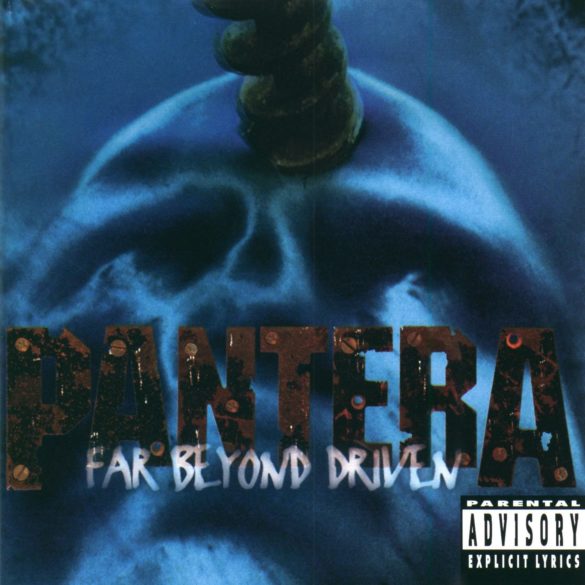
2. Pantera – Far Beyond Driven (1994)
Naturally, soon after I got the Puppets record, I discovered Pantera. It was all over after that. I was instantly obsessed with these southern guys who played pointy guitars and sounded so pissed off. I was devastated when I found out my favorite guitar player died before I even knew who he was. I spent many hours in my Catholic school principal’s office because I wrote “R.I.P. Dimebag” on all my homework assignments. FBD wasn’t my first Pantera record and honestly isn’t even my favorite, but the tracks “5 Minutes Alone,” “I’m Broken,” and “Strength Beyond Strength” were enough to change music for me. There was an attitude behind all those riffs that just made you curl your upper lip and want to break something. The groove behind those songs felt so natural to me, and incorporated a southern style I grew up hearing in Arkansas. They knew how to “bend them strangs!” “25 Years” is a good example of that. Also, “I’m Broken” has the coolest riff ever, so if you ever come to an N.J. show, that’s what you’ll hear me soundcheck with.
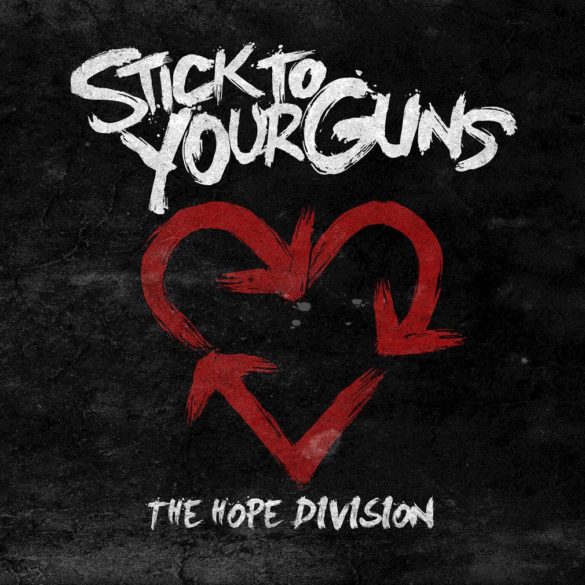
3. Stick to Your Guns – The Hope Division (2010)
Stick to Your Guns was the first band that got me interested in hardcore and led to my love of bands like Trapped Under Ice, Terror and Back Track. I’m a pretty young guy, so these were my introduction to heavy music and I just had to work backwards from there. I started listening to this record when I was in junior high, when I first moved from Catholic school to public school. It definitely wasn’t the easiest time and wasn’t the easiest place to make friends when all I wore was Metallica shirts. This was the record that made me walk a little taller and ultimately instilled a sense of hope in me. Even throughout high school, when shit would get rough, I’d just drive around town in my El Camino listening to this record, and it felt like I was giving everyone and everything that sucked the middle finger. The record unquestionably influenced me musically, but ultimately it was much more of an influence on my mentality. On my first tour with N.J., Jesse [Barnett, Stick to Your Guns vocalist] came out to a show and I got to thank him for this record. It was a cool “full circle” moment for me.
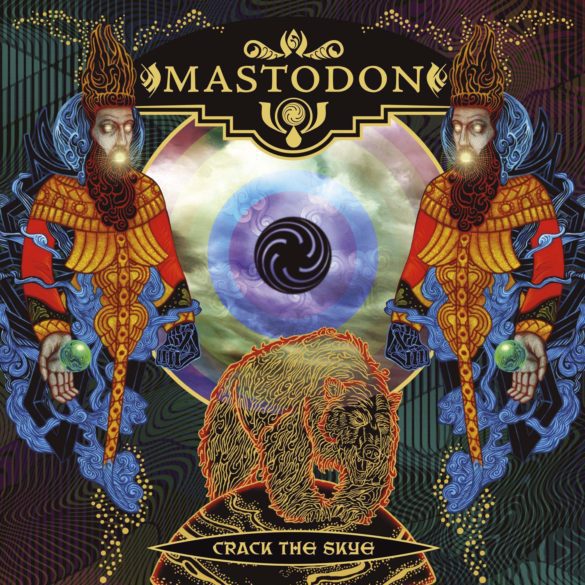
4. Mastodon – Crack the Skye (2009)
Mastodon showed me how much you can really do with a guitar. Crack the Skye was the first record that I really dove into, and it took everything I knew about writing melodies on the guitar and threw it out the window. First, with the note selections and scales that they used, but also in how they played them. I remember watching studio videos of Brent Hinds doing those banjo roll picking patterns, and it blew my mind to see them used for that style of music. Listening to this record so heavily enabled me to write things that branched away from what was typical and taught me not to be afraid to write parts with discordance or that created odd moods. Crack the Skye was like a classic rock album from a slightly twisted dimension, with everything from big Jimmy Page-style solos to subtle organ parts that seemed to fit almost too perfectly, not to mention the untouchable guitar tones. There’s so much clarity in those chords and their crazy “noodly” parts—they really taught me you don’t have to play through the highest gain amps to sound heavy.

5. Alexisonfire – Old Crows/Young Cardinals (2009)
I don’t remember exactly when I first heard AOF, but I do remember buying this record at Hastings and not really knowing what I was getting into. I think I had probably only heard “This Could Be Anywhere in the World” and maybe “Accidents” before that. I used to buy a lot of records by bands that I hadn’t really listened to before just to surprise myself. One of my favorite things about this record and this band was the way they integrated three very distinct voices in every song. Between Dallas [Green], Wade [MacNeil], and George [Petit], it was like you were constantly getting hit in the face from a different angle. This album taught me a lot about writing powerful guitar parts, as well as how to balance dynamics. They weren’t shredding or playing the fastest riff that they could. There were spaces and an openness that came from beating the shit out of big chords and letting them ring. This record also led me to discovering City and Colour, which rivals Pantera as my favorite band. A huge part of my approach to writing came from learning C&C songs on an acoustic guitar and seeing how I could create melody lines inside of the chord progressions.







